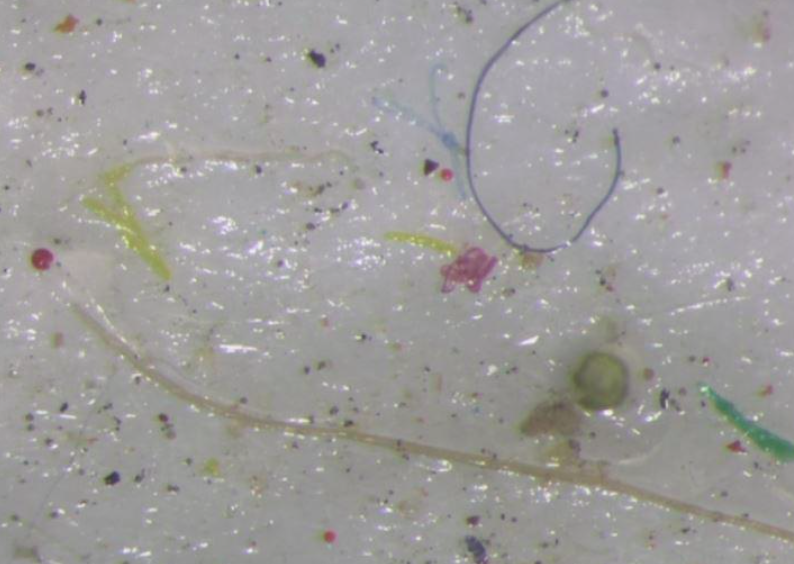
Microplastic found in ice core samples taken from the Northwest Passage is shown on a screen as part of an 18-day icebreaker expedition taking place in July and August 2019 in the Northwest Passage, in a still image taken from a handout video obtained by REUTERS on August 14, 2019. Northwest Passage Project/Camera: Duncan Clark via REUTERS
reuters.com - by Matthew Green - August 14, 2019
Tiny pieces of plastic have been found in ice cores drilled in the Arctic by a U.S.-led team of scientists, underscoring the threat the growing form of pollution poses to marine life in even the remotest waters on the planet . . .
. . . The team plans to subject the samples to further analysis to support a broader research effort to understand the damage plastic is doing to fish, seabirds and large ocean mammals such as whales . . .
. . . much of the large amounts of microplastic found in the Arctic in previous studies had probably been carried there through the atmosphere.
“Once we’ve determined that large quantities of microplastic can also be transported by the air, it naturally raises the question as to whether and how much plastic we’re inhaling,” Bergmann said in a statement.
Recent Comments